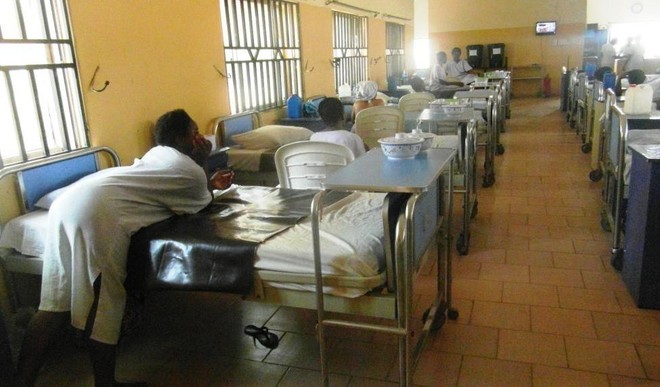
Mary Okunade gave birth to her third baby, but it wasn’t joy she felt. The birth started her spiral of shame and pain.
“I discovered I couldn’t control my urine anymore,” she remembers.
The caesarean section was a last resort after she laboured for a “whole day,” she says.
But it was botched.
The result was a tear in the wall between her vagina and bladder. Urine leaked through without control.
She had fistula, and she lived with it for four years.
She visited a teaching hospital, but couldn’t pay surgery fees. Until some fistula surgeons staged a pool surgery in Ilorin to repair women with fistula. Okunade bussed the 161km to Ilorin.
Estimates suggest up to 12,000 women develop fistula every year — from prolonged obstructed labour and from botched surgeries. Only around 5,000 get repaired each year, estimates indicate.
Few ever have access to get repaired – and it can be repaired and prevented, experts say. But there just aren’t enough surgeons or are there enough equipment.
Fistula Care Plus (FC+), a five-year project funded by the United Agency for International Development, has helped train some 100 doctors and nurses in fistula care, but it estimates only 35% of them remain for repairs, whether full time, part time or those newly trained.
Growing team
Until three years ago, University College Hospital, Ibadan was the go-to centre in the south west.
Adeoyo Maternity Hospital, Ibadan, referred its fistula cases there, admits Dr Adeyanju Olusoji, chief consultant at Adeoyo.
In the last three years, Adeoyo has grown its own fistula team to hold surgeries in its theatres.
It draws fistula surgeons into a “pool” to repair dozens of women periodically, using some equipment donated by FC+ but they just aren’t enough.
The latest batch of fistula surgery equipment it got is valued at N1.8 million. Another N7.5m worth of supplies for family planning is to be used in 11 health facilities across Oyo state.
Kwara state’s Sobi Specialist Hospital got another set of equipment valued at N1.8m. some N7.4m worth of equipment will go to another 11 health facilities in Kwara.

“Small but very, very vulnerable”
The link between fistula and family planning is obvious, says Dr Habib Sadauki, country manager for Engender Health, which runs the FC+.
“There’s strong relationship between how many babies you have, how soon you do it and whether you do it early or late,” says Sadauki.
“There are complications that can arise as a result of that childbirth, and fistula is one of those complications. That’s why women should space their childbirth.”
Fistula is devastating, and many women living with it face stigma and rejection from husbands, families and communities.
“They are a small but very, very vulnerable group that requires our attention. They are rural, poor and ignorant. They are severely underprivileged,” says Sadauki.
With treatment, “their dignity is restored; that is the aim of this project. She can resume her marriage, her reproduction and bear children in future,” he adds.
“When a country is in trouble”
Oyo state itself has few cases, and most cases treated in Oyo come from surrounding areas, and it is a challenge for protecting maternal health, says Dr Azeez Adeduntan, Oyo health commissioner.
“When a country is in trouble, you look at the women and children. That’s the yardstick by which any country is measured,” Adeduntan says. Oyo welcomes the donation in praise of a public-private partnership to push up better health care for women.
Field statistics show 85% of women who develop fistula during childbirth lose their baby, a “double jeopardy” that the anti-fistula community is battling.
It is both preventable and treatable, and that could hold the key to managing the numbers. They are expected to go down, on account of more repairs this year alone.
But the finance and the hands are a stumbling block. Kwara has a budget of N6m for fistula care, with N4m approved for intervention, says its health commissioner Suleiman Alege.
It also expects another source of funding – in the implementation of the nationwide programme Saving One Million Lives. But keeping trained doctors and nurses is a hassle.
Brainshift moves trained healthworkers around from clinical services to administration, but retiring out of work is Kwara’s peculiar problem, says Alege.
“We have a healthworker registry, so we know where our doctors and nurses who have received training are. If we want to move them, we must get someone from other centres who have undergone the same training,” Alege explains.
Okunade got repaired last year. She only wished it were sooner and closer home.

 Join Daily Trust WhatsApp Community For Quick Access To News and Happenings Around You.
Join Daily Trust WhatsApp Community For Quick Access To News and Happenings Around You.


